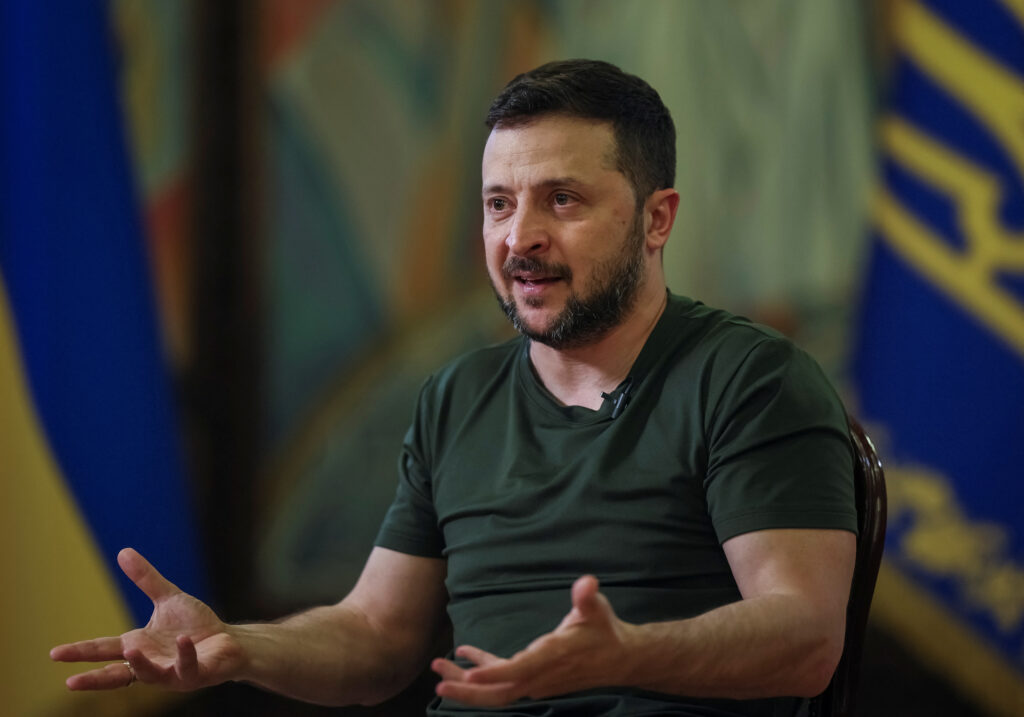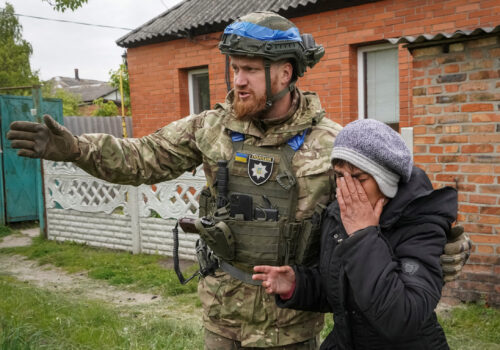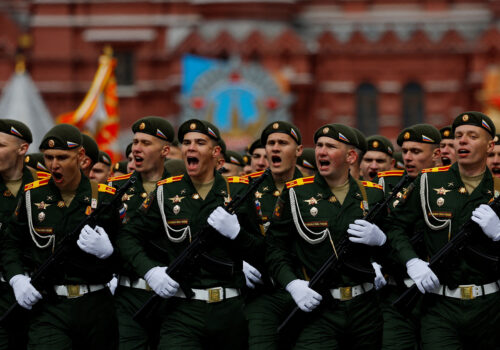Ukrainian President Volodymyr Zelenskyy’s five-year term in office ended on May 20, but he will remain in his post until security conditions allow for elections to be held. Predictably, the Kremlin is already exploiting this technicality to question Zelenskyy’s legitimacy, but Russia’s claims ignore the many obvious obstacles to holding a credible democratic vote in wartime Ukraine.
In the years following the start of Russian military aggression against Ukraine in 2014, the Ukrainian authorities were able to conduct multiple presidential and parliamentary elections that were consistently rated as free and fair by international democracy watchdogs. Following the onset of Russia’s full-scale invasion in February 2022, this is no longer possible.
The key issue is security. In order for any election to take place in Ukraine, the authorities must be able to ensure the safety of millions of voters and thousands of election officials at polling stations and election commissions across the country. That is clearly out of the question at present, particularly in light of Russia’s record for repeatedly targeting civilians. This also rules out the presence of international election observers.
It is even more difficult to imagine how the hundreds of thousands of Ukrainian men and women currently serving in the armed forces could participate in a wartime ballot, both as voters and as candidates. Russia would certainly view any gatherings of voting soldiers as priority targets. “It would be unfair if those defending our land were denied the opportunity to vote,” commented President Zelenskyy in March.
Security concerns are also one of the key factors that make it impossible to stage anything resembling a normal election campaign. With election rallies and public meetings of any kind at high risk of being bombed by Russia, the campaign would largely have to take place online. This would fall well short of Ukraine’s established democratic standards, while also creating an inviting environment for Russian interference.
Stay updated
As the world watches the Russian invasion of Ukraine unfold, UkraineAlert delivers the best Atlantic Council expert insight and analysis on Ukraine twice a week directly to your inbox.
It is hard to see how Ukraine could hope to overcome the huge administrative challenges created by the displacement of millions of Ukrainian citizens following the Russian invasion. There are currently believed to be approximately six million internally displaced people in Ukraine. Enabling them to vote would require a huge effort to update voter registers. This would likely raise all manner of additional questions regarding issues such as official and temporary addresses.
Meanwhile, at least five million Ukrainians are currently residing outside Ukraine as refugees, half of whom are eligible to vote. Existing voter registration procedures for Ukrainians living abroad are not designed to accommodate such large numbers, while Ukraine’s embassies and consulates would be unable to cope with so many voters. Without the participation of Ukrainian refugees, any wartime election would fail to meet basic democratic standards.
Eurasia Center events

Recent research indicates that Ukrainian society recognizes the impracticality of wartime elections and is broadly supportive of the government’s decision to postpone any national votes until the security situation improves. A February 2024 poll conducted by the Rating Sociological Group on behalf of the International Republican Institute found that 67 percent of Ukrainians opposed holding presidential elections amid Russia’s ongoing invasion.
There is also a consensus among Ukraine’s rival political parties that elections should wait until after the war. In November 2023, all parliamentary factions endorsed a memorandum backing the postponement of presidential and parliamentary votes until the end of hostilities. Ukraine’s vibrant civil society agrees, with more than 100 organizations releasing a joint statement in September 2023 rejecting the idea of wartime elections.
While there is virtually no indication of any appetite for wartime elections inside Ukraine itself, Russia and its allies are expected to continue pushing the notion of Zelenskyy’s alleged illegitimacy in the coming months. Indeed, some of the most prominent Kremlin-friendly figures in Congress have already begun promoting this narrative as part of ongoing efforts to argue against further US support for Ukraine.
Ukraine is not the first country to delay elections due to wartime conditions, of course. For example, During World War II, British Prime Minister Winston Churchill repeatedly postponed the country’s scheduled general election, but nobody accused him of undermining the democratic legitimacy of the British parliament.
Ukrainians have impeccable democratic instincts, having staged two separate pro-democracy revolutions in the past twenty years. Indeed, the current war is in part a struggle to defend the country’s democratic identity against Putin’s authoritarian imperialism. At the same time, Ukrainians are sufficiently sensible to understand that the idea of holding elections amid the largest European invasion since World War II is absurd.
Dr. Elena Davlikanova is a Democracy Fellow at the Center for European Policy Analysis and an associate professor at Sumy State University in Ukraine.
Further reading
The views expressed in UkraineAlert are solely those of the authors and do not necessarily reflect the views of the Atlantic Council, its staff, or its supporters.

The Eurasia Center’s mission is to enhance transatlantic cooperation in promoting stability, democratic values and prosperity in Eurasia, from Eastern Europe and Turkey in the West to the Caucasus, Russia and Central Asia in the East.
Follow us on social media
and support our work
Image: Ukraine's President Volodymyr Zelenskiy speaks during an interview with Reuters, amid Russia's attack on Ukraine, in Kyiv, Ukraine May 20, 2024. (REUTERS/Gleb Garanich)





